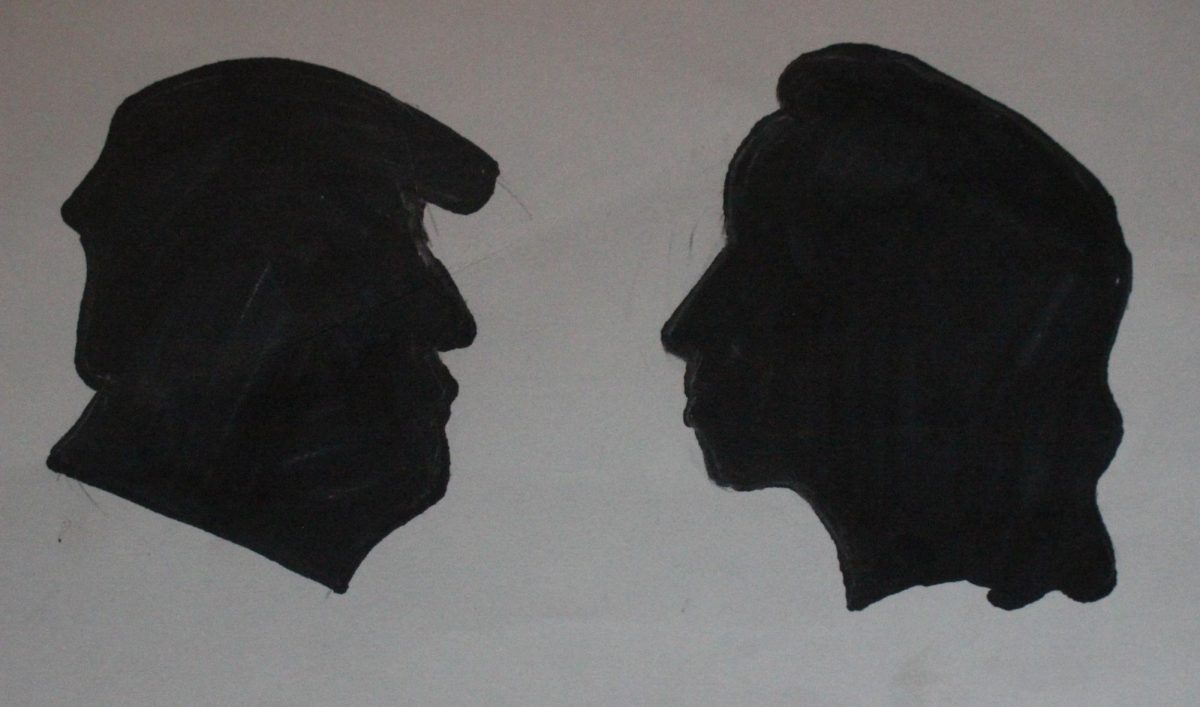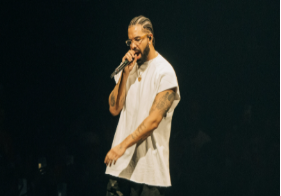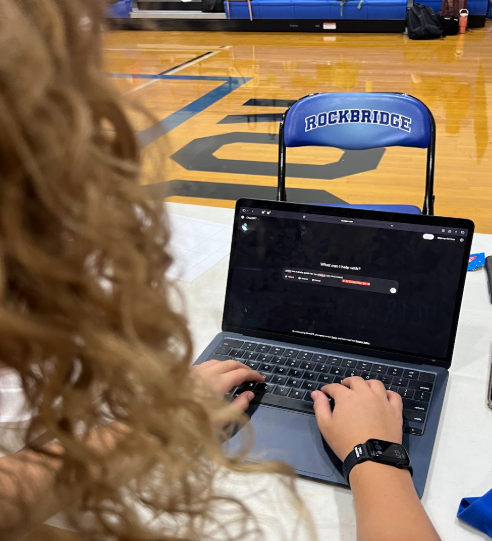Opinion: Kamala Harris takes on Donald Trump in their First Presidential Debate
On Sept. 10, candidates for the 2024 presidential race, Kamala Harris and Donald Trump, debated at Philadelphia’s National Constitution Center, which was hosted by American Broadcasting Company News (ABC News) and monitored by ABC News anchors (ABC News). The debate was arguably one of the most entertaining and most discussed amongst young people in recent political history.
This debate had a very unique and peculiar start. On July 21, president Joe Biden decided to drop out of the race. Throughout his campaign, he began to lose more supporters, especially from younger voters, which was the demographic he was hoping to draw the most votes from. Biden’s decision to leave the race was mostly in response to calls for him to step down from re-election, due to his age of 81 years old and concerns for his well-being and health if he continued running.
Additionally, his policies regarding U.S. involvement in the Israeli-Palestinian conflict caused widespread controversies amongst many young voters and democrats. As Biden’s popularity declined, the likelihood of Trump winning the presidential election greatly increased.
Once Biden dropped out of the race, he endorsed his vice president Kamala Harris to be the new Democratic nominee. Before Harris announced her official decision of entering the race, donations to her campaign began flooding in as confidence in her campaign increased by fellow democrats.
She also soon regained young swing voters’ (voters who aren’t devoted to the Republican or Democratic party) favor for the democratic party by participating in the “Brat Summer” trend on TikTok and by discussing and campaigning issues young voters are more likely to care about, such as climate change. Despite having only three months to campaign, her campaign had a very strong start.
Shortly after Harris won the nomination as the democratic presidential candidate on Aug. 6, Harris and Trump scheduled their first presidential debate for Sept. 10.
Millions of Americans tuned into the debate that night from across the country in order to gain more input on their decision of whom they should vote for in Nov..
As ABC News anchor David Muir introduced the candidates, the debate hall was void of sound due to the lack of audience in the hall.
Each candidate walked into the hall, greeted each other, and took their places behind their podiums. Muir’s first question for the candidates concerned the economy and cost of living in the U.S., which has been very high and a large issue for citizens in the past few years. Harris begins by appealing to her background of growing up middle class to a single mother and describing how she would lower taxes and advocate for the middle class as well as stating that her opponent’s tax plan would harm the middle class.
In his response, Trump argued Harris’ claim was false. He went on to describe how inflation has exponentially worsened in the past few years by fault of Biden’s presidency, while neglecting to mention the fact that the inflation is caused in part by the lasting economic effects from the COVID-19 pandemic. He only brought up the pandemic when it was beneficial for him by stating “how well he handled it”, when in reality he caused controversy and division throughout the U.S. by claiming the pandemic was a “hoax” and that doctors’ research on the Corona virus was inaccurate.
Mid-way through his response to Harris, he brings up immigration issues and claims “… we have millions of people pouring into our country from prisons and jails, from mental institutions and insane asylums… [Kamala Harris] and Biden let [immigrants] into our country. And [immigrants are] destroying our country. They’re dangerous. ” (ABC News) .
Trump made this false claim in order to attack his opponent which exposed him as using the classic straw man fallacy, which is a logical fallacy in which the argurer attacks his opponent in order to divert attention from himself. Fallacies were a common theme throughout Trump’s arguments. In fact, it seems as if he spent more time attacking Harris and claiming everything she said was a lie rather than presenting his own arguments as to why he should be president and what his policies were. Additionally, he seemed to switch subjects every few minutes and avoid nearly every question the debate hosts asked.
According to ABC fact-checkers, many of Trump’s claims are inaccurate and mostly false. While Harris’ claims often needed more context, her’s were ultimately more true than many of Trump’s claims, which shows the additional holes in his argument.
Despite Trump’s embarrassing performance, this election is likely going to be a close race, according to poll results from the New York Times. While he has lost support from most of his supporters that are from the center of the political spectrum, Trump’s more dedicated followers that are far right on the political spectrum remain more loyal to him each day. His followers are the most prominent in red (Republican) states, especially in rural areas. Additionally, Trump is more established than Harris and already has a strong following, whereas Harris has had less time to build a following as strong as his.
Due to Trump’s performance in the debate, he doesn’t seem the most qualified for the task of commander in chief. His arguments were contradictory, confusing, and unclear. Harris’ arguments were logical, utilized rhetoric appeals, and easy to understand, which is a striking difference from her opponent’s. This race remains very close and it will be extremely hard to predict the winner of the race. It’s likely to remain that way until the day the final votes are counted.
On Sept. 21, Harris accepted an invitation from the Cable News Network (CNN) to participate in a second debate with Trump on Oct. 26 (CNN). However, Trump has yet to accept the debate and has provided a cloudy answer as to whether he would or not, by telling CNN correspondents he was unsure whether he would accept it but then posting on social media that “THERE WILL BE NO THIRD DEBATE” (CNN). If the debate does proceed, then it is likely we’ll have a better understanding of the candidates’ policies and who is in the lead; but, like everything in the race so far, it will be hard to predict.







